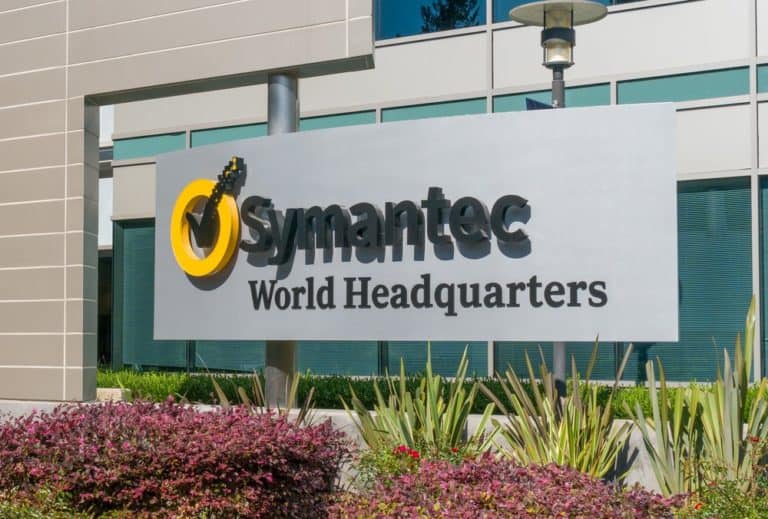Broadcom has announced that it is taking over Symantec’s enterprise security division for $10.7 billion ($9.56 billion). This means that Symantec itself only has a product portfolio for consumers.
Broadcom takes over all security products for companies. The Symantec brand name will hereby be maintained, writes Silicon Angle. That department turned in the fiscal year 2019 the company’s sales of 2.3 billion U.S. dollars. That was about half of Symantec’s total turnover.
The department sells software that helps large companies to detect cyber attacks on networks and devices. It also sells monitoring software for the cloud and other services.
After the acquisition, Symantec will therefore only have products for consumers. These include the Norton antivirus software and the LifeLock identity protection brand.
Broadcom dives into software
This is the second time that Broadcom has made a clear commitment to software through an acquisition. Last year, the company also acquired CA Technologies, which develops software for agile software development, DevOps and security.
With this acquisition Broadcom wanted to expand its activities beyond semiconductors and storage. The company is struggling to sustain its growth in its primary market, due to strong competition and the impact of the trade dispute between China and the US.
CEO Hock Tan said at the announcement of the acquisition that the increased focus on software is reducing the company’s volatility.
Turnover forecast
In June, Broadcom lowered its expectations for this year’s sales after one of its largest customers, Huawei, was blacklisted by U.S. President Donald Trump.
Despite the acquisition of Symantec’s portfolio, the revenue forecast remains unchanged, according to the chip manufacturer. It is expected that in the fiscal year 2019 a turnover of 22.5 billion dollars (20.11 billion euros) will be generated. 17.5 billion dollars (15.64 billion euros) of which must come from chips, the rest from software.
This news article was automatically translated from Dutch to give Techzine.eu a head start. All news articles after September 1, 2019 are written in native English and NOT translated. All our background stories are written in native English as well. For more information read our launch article.